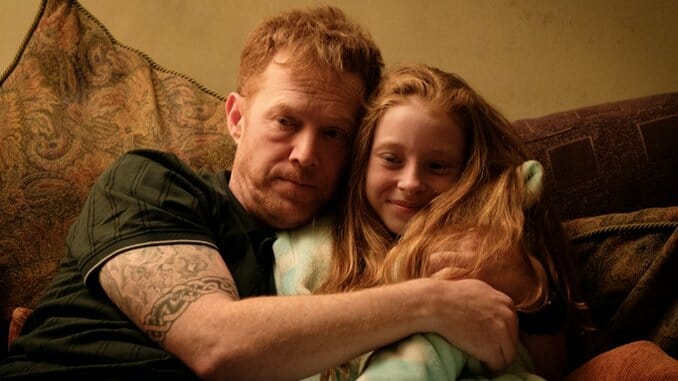“Films can’t do as much as we’d like to think,” Ken Loach said in an interview back in late 2019, after spending nearly six decades making politically critical neorealist films. This is both the least expected sentiment anyone might expect a filmmaker to express, and a characteristically honest bit of introspection from one of cinema’s most honest directors. He’s right: A movie on its own won’t change the world. It can, however, give its audience a glimpse of human experiences beyond their own, and if the audience includes just one or two decent people, a glimpse might make a difference. If nothing else, it’ll make them angry, which is better than being ambivalent.
Not surprisingly, Sorry We Missed You, Loach’s latest, sows that anger in working class plight: It’s the kind of culture-conscious movie he’s been making since forever, from Kes to I, Daniel Blake, demonstrating not only his skill as a craftsman but his knack for finding the pulse of what’s happening in contemporary society. In this case, Loach, working with screenwriter Paul Laverty for the fifteenth time, has cracked the gig economy, quietly revealing it as an insatiable monster that chews up the working class and spits them out while consumers at home bay for instantaneous convenience.
This is classic Loach. His movies typically force viewers to acknowledge the toll a job can take on both body and spirit. Without fuss or forced moralizing, Sorry We Missed You performs this service for the folks who thanklessly zip about town dropping off parcels ordered yesterday by people who actually needed them a week before. The movie demystifies the browser sorcery of one-click purchases by humanizing, for better and for worse, the mechanics behind this modern-day ministration: Loach starts with Ricky (Kris Hitchen), head of the Turner family, who is first met interviewing Maloney (Ross Brewster), his boss-to-be, for a post as an owner-driver for a third-party delivery outfit nestled in North England. Maloney seems reasonable enough. He hears Ricky’s story, at least, his history as a blue-collar man whose years of hard labor have left him craving for freedom from micromanaging bosses. Ricky wants to be his own boss now, and Maloney’s spiel about choice and self-agency appeals to his wants.
It’s all an illusion, of course, and the economy of Laverty’s writing succinctly lays out the tension between Ricky’s ambitions and the crushing realities of the position he’s sought out. The gift of personal determination Maloney offers him is a Trojan horse containing seeds of poverty. The way this job works, every package Ricky hands off is another row sown in his inevitable destitution. It’s sick. It’s barbaric. It’s just one problem among several the Turners deal with as a direct consequence of Ricky’s enterprise. He has to sell off, for instance, the family car, which his wife, Abbie (Debbie Honeywood), uses for her own career as a home care nurse, which means she has to use public transportation, which is another stress added to an already stressful job made more stressful by her boss, who like Maloney doesn’t really give a damn about Abbie as a person—only as a hireling.
Sorry We Missed You operates on a micro-level with contrastingly astronomical stakes. It’s a movie about one small family—including, apart from Kris and Debbie, their mulish teen son, Seb (Rhys Stone), and younger, sweethearted daughter, Liza Jane (Katie Proctor)—doomed to the streets if either Dad or Mom missteps. They have no safety net. They have no contingency plan. Worst of all, Kris and Debbie both have jobs designed to wring the most out of them with the least compensation or compassion in exchange. The perils of parenthood are enough without having to answer the question of how the lights stay on every day. Still, Loach’s cast avoid one-dimensional performances: Even Stone’s portrayal of Seb, an infuriatingly smug kid who tosses away every opportunity afforded him by Kris and Abbie’s struggles, locates his human center. One evening, family dinner goes as family dinner should, with laughter and smiles—all the accoutrement one looks for in suppertime. The Turners’ joy is palpable. It’s also certain to be short-lived.
When that aforementioned doom materializes in Sorry We Missed You’s climax, the average viewer may pause long enough to reconsider renewing their Amazon Prime membership, but not enough to end it. This is fine. Loach knows there are heavy restraints on art to affect meaningful change in the world. But he’s also aware of the kinship between art and activism: How art can educate people, and agitate them, and perhaps lead them to make more responsible choices in their personal lives. Maybe you don’t really need that custom-sloganed T-shirt tomorrow, or maybe you can just go out to a store when you need shampoo. And if you do buy that shirt, and if you do buy your favorite shampoo, with the press of a mouse, then maybe Sorry We Missed You will make you look at the person bringing it to you and see them for who they are.
Director: Ken Loach
Writer: Paul Laverty
Starring: Kris Hitchen, Debbie Honeywood, Rhys Stone, Katie Proctor, Ross Brewster, Charlie Richmond, Sheila Dunkerley
Release Date: March 6, 2020 (NY/LA); April 3, 2020 (expansion)
Bostonian culture journalist Andy Crump covers the movies, beer, music, and being a dad for way too many outlets, perhaps even yours. He has contributed to Paste since 2013. You can follow him on Twitter and find his collected work at his personal blog. He’s composed of roughly 65% craft beer.
